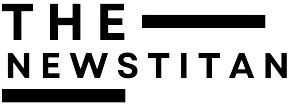Facebook has removed some advertisements containing what the company says is misleading health information about the HIV-prevention drug, Truvada, following an outcry from LBGTQ groups and politicians.
“After a review, our independent fact-checking partners have determined some of the ads in question mislead people about the effects of Truvada,” Facebook spokesperson Devon Kearns told ABC News in an email. “As a result, we have rejected these ads and they can no longer run on Facebook,”
They argued in an open letter sent to Facebook in December, that the ads went beyond misinformation to “put people’s lives in imminent danger”.
Medical studies suggest drugs such as Truvada are safe.
But the ads, from law firms attempting to convince gay and bisexual men to join lawsuits, suggested otherwise.
They focused on harmful side effects, such as kidney issues.

Facebook agreed that this was misleading: “After a review, our independent fact-checking partners have determined some of these ads in question mislead people about the effects of Truvada.
“As a result, we have rejected the ads and they can no longer run on Facebook,” it said in a statement to the BBC.
The US Center for Disease Control and Prevention has said that PrEP (Pre-Exposure Prophylaxis) drugs are “highly effective for preventing HIV from sex and injection drug use”.
Pressure has been mounting on the social network to do something about the issue since December when an open letter signed by 50 health and LGBTQ groups was sent.
It read: “By allowing these advertisements to persist on their platforms, Facebook and Instagram are convincing at-risk individuals to avoid PrEP, invariably leading to avoidable HIV infections. You are harming public health.”

On Monday morning, Facebook quietly removed some of the ads. “After a review, our independent fact-checking partners have determined some of the ads in question mislead people about the effects of Truvada,” a spokesperson for the company told Washington Post. “As a result, we have rejected these ads and they can no longer run on Facebook.”
“It is critical that Facebook and other social media platforms consider quick action when civil society organizations flag inaccurate information in ads on their platforms,” Rich Ferraro, the chief communications officer at Glaad, said on Monday. “The pervasiveness of these particular ads, coupled with the slow pace of Facebook’s decision making and the real-world harm, should be catalysts for Facebook to further review how misleading and inaccurate ads are allowed to be targeted at LGBTQ and other marginalized communities.”
Ferraro said Glaad’s campaign targeting misleading HIV-prevention ads on Facebook is only the first of many the group has planned against social media platforms “to demand safer environments for LGBTQ people”.

